SCIP infografika
SCIP infografika
Kas ir SCIP?
SCIP ir datubāze, kurā iekļauta informācija par vielām, kas rada bažas kā tādas vai kompleksos objektos (produktos), kā noteikts saskaņā ar Atkritumu pamatdirektīvu (APD).



KAS IR JĀDARA?
SCIP datubāzes mērķis ir vairot zināšanas par bīstamām ķīmiskajām vielām izstrādājumos un produktos visā to dzīves ciklā, tostarp atkritumu posmā.









APRITES EKONOMIKA ES
SCIP datubāze nodrošina, ka informācija par izstrādājumiem, kuros ir kandidātu sarakstā iekļautas vielas, ir pieejama visā ražojumu un materiālu aprites ciklā, tostarp atkritumu posmā.
Tās mērķis ir arī:
- mazināt bīstamu vielu daudzumu atkritumos;
- veicināt šo vielu aizstāšanu ar drošākām alternatīvām;
- veicināt labāku aprites ekonomiku, palīdzot atkritumu apsaimniekotājiem nodrošināt, ka reciklētos materiālos nav šādu vielu.
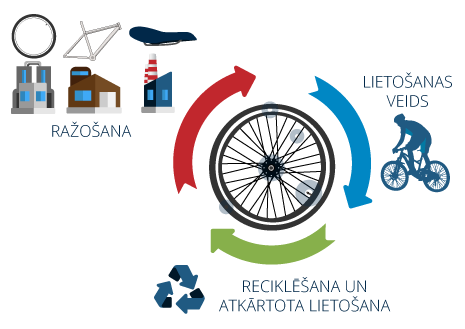
KĀDAS IR SAISTĪBAS

Ja izstrādājumi, ko jūs ražojat, montējat, importējat vai izplatāt, satur SVHC, kas iekļautas ECHA kandidātu sarakstā, un to koncentrācija pārsniedz 0,1 % pēc masas, jums par tiem ir jāpaziņo SCIP datubāzei.
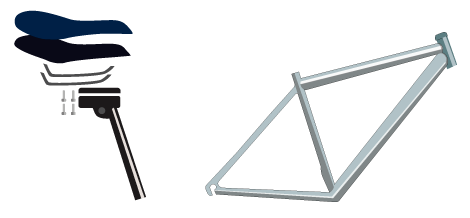
KOMPLEKSS OBJEKTS
“Komplekss objekts” – objekts, kas sastāv no vairāk nekā viena izstrādājuma. Kompleksos objektos vairāki izstrādājumi var būt savienoti vai samontēti kopā dažādos veidos.
Samontēti vai savienoti izstrādājumi joprojām ir izstrādājumi, kamēr tie saglabā īpašu formu, virsmu vai struktūru.
SVHC
Kā SVHC var identificēt vielas ar šādām bīstamības īpašībām:

vielas, kas atbilst kritērijiem, lai tās klasificētu kā 1.A vai 1.B kategorijas kancerogēnas, mutagēnas vai toksiskas reproduktīvajai sistēmai (CMR) vielas saskaņā ar CLP regulu;

vielas, kas ir noturīgas, bioakumulatīvas un toksiskas (PBT) vai ļoti noturīgas un ļoti bioakumulatīvas (vPvB) saskaņā ar REACH regulas XIII pielikumu;

KAS JUMS JĀDARA?
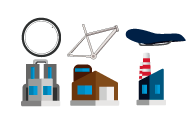 RAŽOTĀJS
RAŽOTĀJS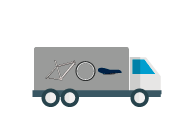 IZPLATĪTĀJS
IZPLATĪTĀJS MONTĒTĀJS
MONTĒTĀJSJums ir jāiesniedz ECHA šāda informācija:

Jūsu izstrādājuma identifikācija.
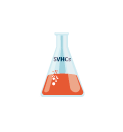
Izstrādājumā esošo kandidātu saraksta vielu nosaukums, koncentrācijas diapazons un atrašanās vieta.

Cita informācija, kas nodrošina tā drošu lietošanu, jo īpaši informācija, kas apliecina, ka pēc tam, kad izstrādājums kļūs par atkritumiem, tas tiks pienācīgi apsaimniekots.
Informācija SCIP datubāzē ir publiski pieejama, jo īpaši atkritumu apsaimniekotājiem un patērētājiem.
ECHA nodrošina sensitīvas informācijas aizsardzību, piemēram, saikni starp vienā piegādes ķēdē iesaistītajiem dalībniekiem.
KAS JUMS JĀDARA?

Ja esat mazumtirgotājs un tikai piegādājat savus izstrādājumus patērētājiem, jums par tiem nav jāziņo SCIP datubāzei.
KAS JUMS JĀDARA?

PATĒRĒTĀJIEM
Lielāka pārredzamība attiecībā uz bīstamām ķīmiskajām vielām izstrādājumos SCIP datubāzē palīdzēs patērētājiem izdarīt labāk pamatotu izvēli, iegādājoties produktus, un sniedz informāciju par to, kā vislabāk šādus produktus izmantot un utilizēt.
KAS JUMS JĀDARA?

SCIP datubāze nerada pienākumus atkritumu apsaimniekotājiem. Datubāze nodrošina tiem papildu informāciju, lai atbalstītu atkritumu apstrādes nozari, uzlabojot pašreizējo atkritumu apstrādes praksi un veicinot atkritumu kā resursa izmantošanu. Piemēram:
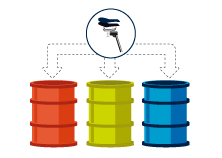
atkritumu savākšanas, demontāžas un šķirošanas operācijās tas var palīdzēt atdalīt atkritumus, kas satur kandidātu sarakstā iekļautās vielas;

tas var palīdzēt identificēt uz materiāliem balstītās plūsmas, ko šīs vielas izstrādājumos var ietekmēt, kad tie kļūst par atkritumiem; un

tas varētu arī veicināt inovācijas un jaunu atkritumu apstrādes tehnoloģiju ieviešanu.


